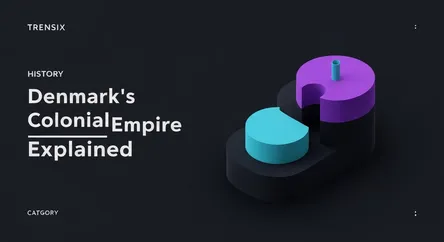History
Denmark's Colonial Empire Explained

An overview of the Danish Empire, a lesser-known colonial power with territories across four continents and a complex legacy that endures today.
What is it?
The Danish Empire, primarily active as Denmark–Norway, was a colonial power from the 17th to the 20th century. Though not as vast as the British or Spanish empires, it held overseas territories across four continents. Key colonies included the Danish West Indies (now the U.S. Virgin Islands), settlements on the Gold Coast in Africa (modern Ghana), and trading posts in India like Tranquebar and Serampore. The empire also encompassed North Atlantic islands like Greenland, Iceland, and the Faroe Islands, which had been old Norwegian holdings. Its economy was driven by trade in sugar, spices, and tragically, a significant role in the transatlantic slave trade.
Why is it trending?
Discussions about the Danish Empire are resurfacing as part of a global trend to re-examine colonial histories. Many nations are confronting uncomfortable aspects of their past, and Denmark is no exception. There are growing efforts within Denmark and its former colonies to acknowledge the full history, including the immense profits derived from sugar plantations and the transportation of over 100,000 enslaved Africans. This reassessment challenges the popular self-image of Denmark as a historically peaceful nation and brings its colonial legacy into contemporary debates about history, memory, and national identity.
How does it affect people?
The empire's legacy endures today. For nations like Ghana and India, its impact is visible in remaining forts and architecture, often overshadowed by later British influence. In the U.S. Virgin Islands, the Danish colonial past is a core part of the islands' history and identity. The most direct impact is felt in the Faroe Islands and Greenland, which remain autonomous territories within the Kingdom of Denmark. This relationship, a direct remnant of the colonial era, continues to shape their politics, identity, and pushes for greater self-determination.